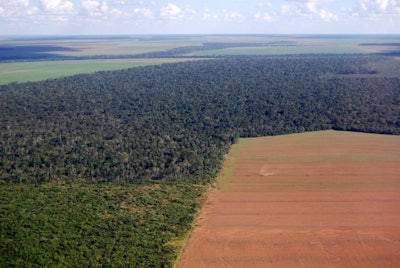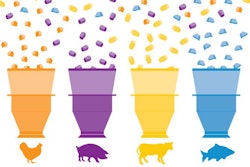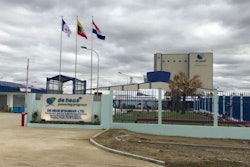
The Brazilian Institute of Environment and Renewable Natural Resources (IBAMA) has issued 62 notices totaling BRL105.7 million (US$28 million) to five grain-trading companies and numerous individual farmers associated with deforestation in Brazil for soybean growing.
According to reports, Cargill Inc., Bunge Ltd., ABC Indústria e Comércio SA, JJ Samar Agronegócios Eireli and Uniggel Proteção de Plantas Ltda. were fined more than BRL24.6 million (US$6.6 million) for buying soy grown on lands without deforestation licenses.
Operation Soy Sauce is meant to draw attention to illegal deforestation throughout Brazil and make the soy industry more accountable for its failure to embargo crops from off-limit areas, IBAMA said. The operation targeted four states: Maranhão, Tocantins, Piauí and Bahia. The regions makes up Matopiba, a region of intense expansion of deforestation in part of the Brazil savannah known as the Cerrado.
"Illegal deforestation in the Cerrado is more accelerated in Matopiba than in other regions of the biome, which requires the improvement of control strategies to ensure that deterrence reaches all illegal links in the chain of production," said Renê Luiz de Oliveira, coordinator general of surveillance environment of IBAMA, in a statement.
IBAMA said it has seized 5,041 tons of grain during the operation.
Protection measures
Two years ago, the Amazon Soy Moratorium – originally launched in 2006 for two years – was extended indefinitely by the Brazilian Soy Task Force (GTF). The GTF is a multi-stakeholder coalition that brings together the private sector, civil society and Brazilian government.
The Amazon Soy Moratorium guarantees market access only to soy products that are free from deforestation, slave labor or threats to indigenous lands. It was the first voluntary zero-deforestation agreement implemented in the tropics, and set the stage for supply chain governance of other commodities, according to the journal Science. Soy, palm oil, cattle and wood are the top four commodities that are most responsible for tropical deforestation on a grand scale, according to the Union of Concerned Scientists.
The agreement was signed by the Brazilian Ministry, the Soy Working Group (GTS – Grupo de Trabalho da Soja), the Brazilian Association of Vegetable Oils Industry (ABIOVE), Brazil’s National Association of Grain Exporters (ANEC) and Greenpeace.

















